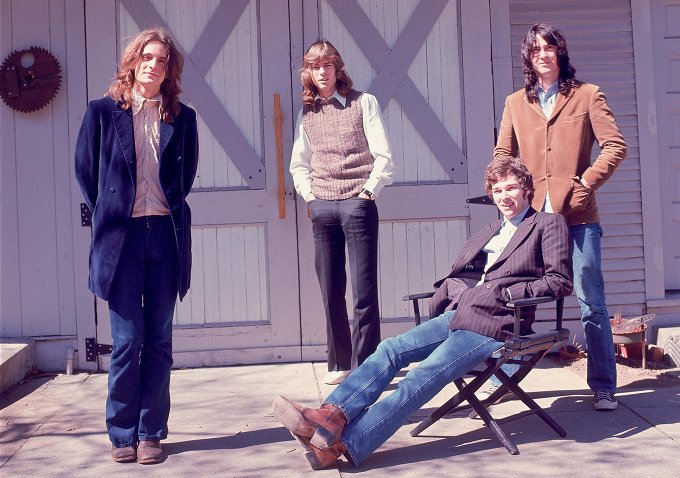 Last week during SXSW, director Drew DiNicola gave an excited Austin audience a preview of his work-in-progress film “Big Star: Nothing Can Hurt Me,” before a star-studded tribute concert to the beloved cult band Big Star. It was an appropriate environment for the sneak peek, as SXSW 2010 served as a de facto memorial for deceased lead singer Alex Chilton, when he unexpectedly passed away from a heart attack just three days before a scheduled appearance at the festival. SXSW Festival Producer Janet Pierson mentioned in her introduction of the film that because it was such an emotionally relevant film to the SXSW audience, she wanted to show it in any form at this year’s fest and would take it as a work-in-progress. And going by the unfinished cut, the movie is destined to be a seminal rock doc in the canon, and one that will bring Big Star to a new generation of fans.
Last week during SXSW, director Drew DiNicola gave an excited Austin audience a preview of his work-in-progress film “Big Star: Nothing Can Hurt Me,” before a star-studded tribute concert to the beloved cult band Big Star. It was an appropriate environment for the sneak peek, as SXSW 2010 served as a de facto memorial for deceased lead singer Alex Chilton, when he unexpectedly passed away from a heart attack just three days before a scheduled appearance at the festival. SXSW Festival Producer Janet Pierson mentioned in her introduction of the film that because it was such an emotionally relevant film to the SXSW audience, she wanted to show it in any form at this year’s fest and would take it as a work-in-progress. And going by the unfinished cut, the movie is destined to be a seminal rock doc in the canon, and one that will bring Big Star to a new generation of fans.
Upon Chilton’s death in 2010, much attention was paid to his life and career, starting as the teenage lead singer of the Box Tops (“The Letter”) before being recruited into his hometown pop-garage band by Big Star founder Chris Bell. What the film does well is focus equal amounts of attention on the music scene in Memphis during the late '60s and '70s, including the formation of Ardent Records, and also on the musical genius of Chris Bell, who is a tragic member of the 27 Club. While it might be easy to turn it into the “Alex Chilton Show” (and, initially, it feels like it might be headed that way), the film is decidedly about Big Star and the environment that produced the band. In fact, after the particularly sensitive and touching telling of Bell’s short, troubled life and tragic end, it almost seems like an afterthought to return to the continuing career of Chilton. Despite this emotional hurdle, the film does a fine job of wrapping up the post-Big Star years of Chilton’s life, and the musical legacy he left.
The film will obviously be tightened up in editing; there were a few wonky transitions between scenes here and there, and an adjustment to the pace will help to ramp up the emotional involvement in the film, but for the adoring Austin audience, every frame was perfect, which was mentioned by an audience member when the filmmakers solicited notes after the screening. The sound mix is also remarkable for an unfinished film, and truly captures the beauty and power of the selections from Number 1 Record, Big Star’s first, classic album, the only one with the original lineup intact.
Big Star is truly a “critic’s band,” and a sequence involving the first Rock Writers Convention at which they played introduces a number of legendary critics who are die hard fans of Big Star, and offer context and analysis to the memories of friends and family, contributing a more well-rounded, academic facet to what is clearly an emotionally driven movie. “Big Star: Nothing Can Hurt Me” is a film of ghosts, with many of the important figures in and around the band sadly deceased, so it’s part portrait, memorial and tribute in its aims.
Fans in the know about Big Star seemed conflicted about their love for the band, wanting success for them, but also wanting to keep them to themselves, the eternal conundrum of any music enthusiast. Big Star remained a cult band for almost the entirety of their tenure, though you’d definitely recognize “In the Street” (thank you, “That 70s Show”) and “Ballad of El Goodo.” Some may not know the name, but the expertly crafted pop tunes seem carved from your very soul, in a way that you recognize them without ever having heard them before. The film interrogates the question about whether Bell or Chilton, or some combination of their chemistry is responsible for the signature Big Star sound. Unfortunately, it's a question that may never be answered. However, what the film might be able to achieve is something the band never could: mainstream success. We will see what the fans have to say about that.

